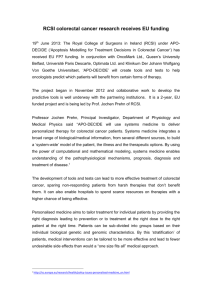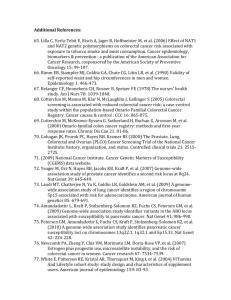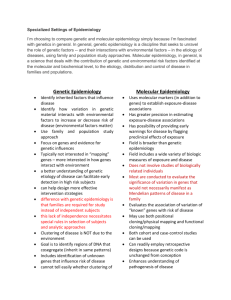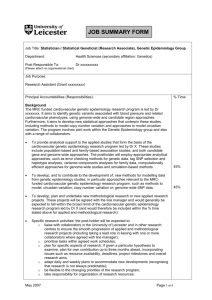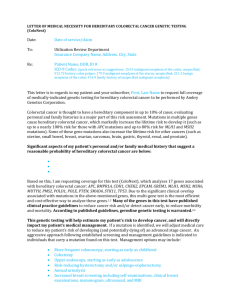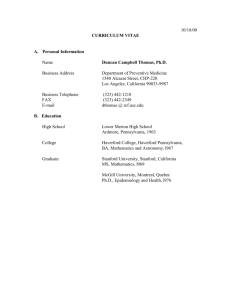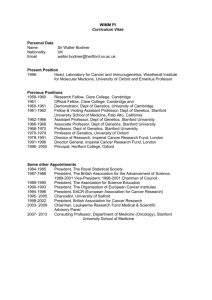Colorectal cancer epidemiology research program: Genes and
advertisement
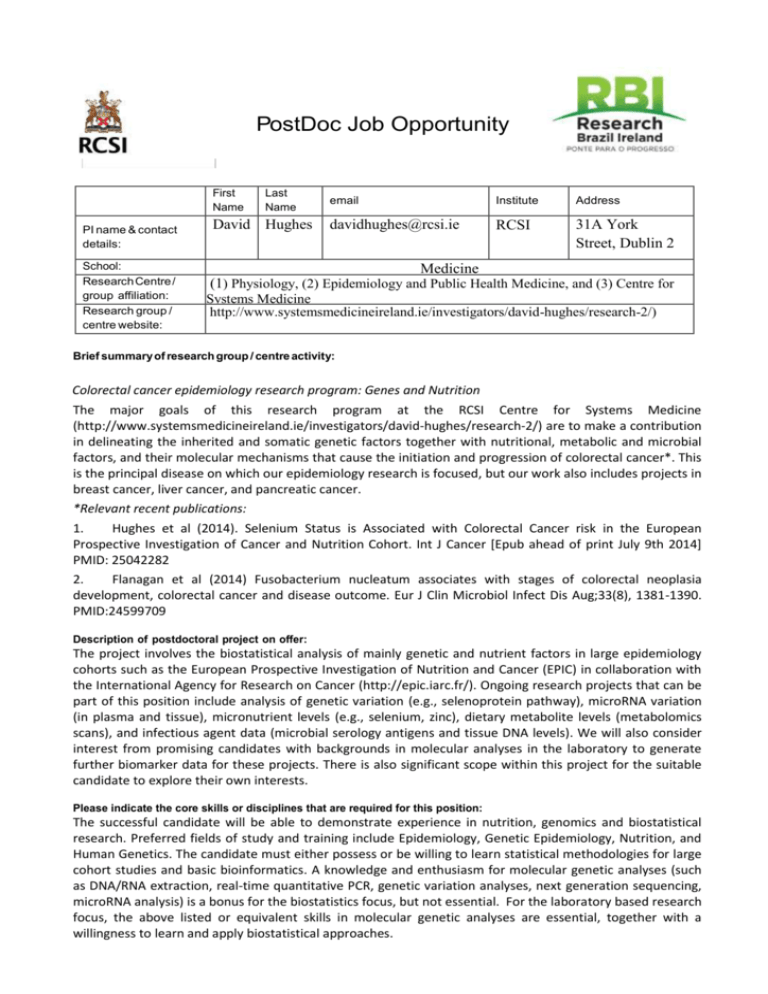
PostDoc Job Opportunity First Name PI name & contact details: School: Research Centre / group affiliation: Research group / centre website: Last Name David Hughes email Institute Address davidhughes@rcsi.ie RCSI 31A York Street, Dublin 2 Medicine (1) Physiology, (2) Epidemiology and Public Health Medicine, and (3) Centre for Systems Medicine http://www.systemsmedicineireland.ie/investigators/david-hughes/research-2/) Brief summary of research group / centre activity: Colorectal cancer epidemiology research program: Genes and Nutrition The major goals of this research program at the RCSI Centre for Systems Medicine (http://www.systemsmedicineireland.ie/investigators/david-hughes/research-2/) are to make a contribution in delineating the inherited and somatic genetic factors together with nutritional, metabolic and microbial factors, and their molecular mechanisms that cause the initiation and progression of colorectal cancer*. This is the principal disease on which our epidemiology research is focused, but our work also includes projects in breast cancer, liver cancer, and pancreatic cancer. *Relevant recent publications: 1. Hughes et al (2014). Selenium Status is Associated with Colorectal Cancer risk in the European Prospective Investigation of Cancer and Nutrition Cohort. Int J Cancer [Epub ahead of print July 9th 2014] PMID: 25042282 2. Flanagan et al (2014) Fusobacterium nucleatum associates with stages of colorectal neoplasia development, colorectal cancer and disease outcome. Eur J Clin Microbiol Infect Dis Aug;33(8), 1381-1390. PMID:24599709 Description of postdoctoral project on offer: The project involves the biostatistical analysis of mainly genetic and nutrient factors in large epidemiology cohorts such as the European Prospective Investigation of Nutrition and Cancer (EPIC) in collaboration with the International Agency for Research on Cancer (http://epic.iarc.fr/). Ongoing research projects that can be part of this position include analysis of genetic variation (e.g., selenoprotein pathway), microRNA variation (in plasma and tissue), micronutrient levels (e.g., selenium, zinc), dietary metabolite levels (metabolomics scans), and infectious agent data (microbial serology antigens and tissue DNA levels). We will also consider interest from promising candidates with backgrounds in molecular analyses in the laboratory to generate further biomarker data for these projects. There is also significant scope within this project for the suitable candidate to explore their own interests. Please indicate the core skills or disciplines that are required for this position: The successful candidate will be able to demonstrate experience in nutrition, genomics and biostatistical research. Preferred fields of study and training include Epidemiology, Genetic Epidemiology, Nutrition, and Human Genetics. The candidate must either possess or be willing to learn statistical methodologies for large cohort studies and basic bioinformatics. A knowledge and enthusiasm for molecular genetic analyses (such as DNA/RNA extraction, real-time quantitative PCR, genetic variation analyses, next generation sequencing, microRNA analysis) is a bonus for the biostatistics focus, but not essential. For the laboratory based research focus, the above listed or equivalent skills in molecular genetic analyses are essential, together with a willingness to learn and apply biostatistical approaches. Please indicate the specific programme category under which the proposed postdoctoral project fits Health and Biomedical Sciences
